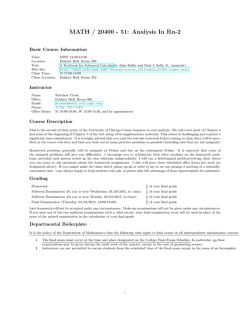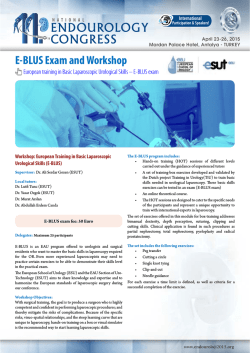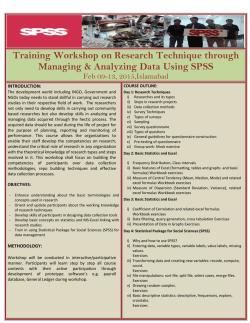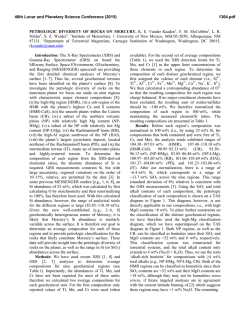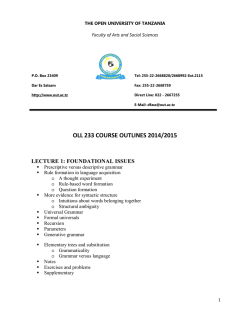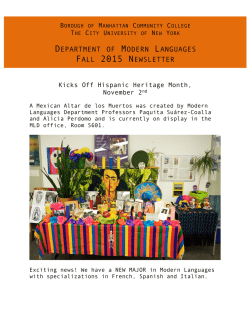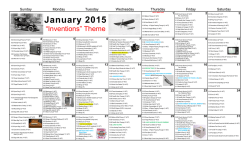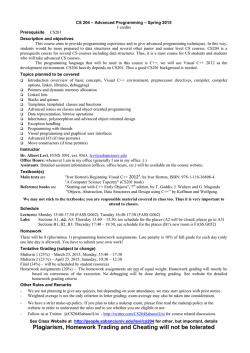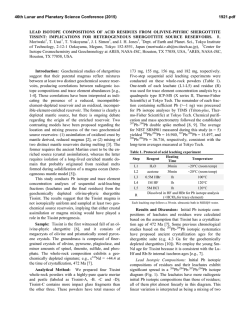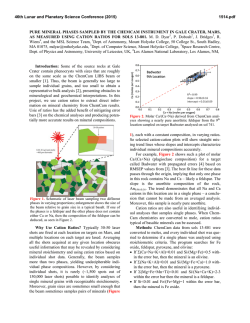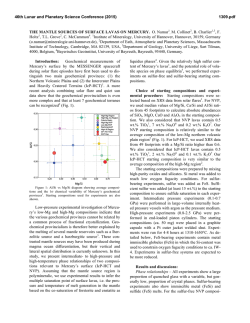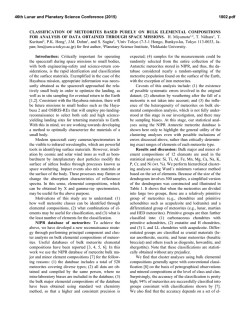
SPAN 340 – HISPANIC CULTURE TODAY: A - Suffolk University
SPAN 340 – HISPANIC CULTURE TODAY: A TRANSATLANTIC PERSPECTIVE Fall 2014 Instructor Information: Instructor: Pedro J. Pérez Leal Email: [email protected] Phone: 91-533-5935 Ext. 134 Office: Humanities & Social Sciences office, top floor Office Hours: Tuesdays and Thursdays, 10:30-11:00, or by appointment Homepage: www.suffolk.edu/academics/18429.php Course Information: Meetings: Tuesdays and Thursdays, 9:00-10:30 Catalog Description: An examination of key issues in Hispanic culture today through the study of literature, film, music and TV. The purpose of the course is twofold: To introduce the students to major themes in recent Hispanic society and culture and, to develop the necessary skills to read and analyze literary texts and other cultural forms. Topics to be discussed include dictatorship and democracy, women and representation, political and domestic violence, national identity, immigration, and mass culture. The selected materials will include texts by authors like Manuel Rivas, Mario Vargas Llosa, Carlos Fuentes, Cristina Peri Rossi, Rosa Montero, Carlos Monsiváis, and Roberto Bolaño among others. Prerequisites: SPAN 290 or SPAN 300 or Instructor's consent Credit Hours: 4 This course follows the US Federal Government’s Credit Hour definition: “An amount of work represented in intended learning outcomes and verified by evidence of student achievement that is an institutional established equivalence that reasonably approximates no less than: (1) (2) One hour of classroom or direct faculty instruction and a minimum of two hours of out of class student work each week for approximately fifteen weeks for one semester or trimester hour of credit, or ten to twelve weeks for one quarter hour of credit, or the equivalent amount of work over a different amount of time; or At least an equivalent amount of work as required in paragraph (1) of this definition for other academic activities as established by the institution including laboratory work, internships, practica, studio work, and other academic work leading to the award of credit hours.” Textbook/Course Materials: No textbook required. A number of readings and visual materials will be made available in different formats as needed. Course Goals & Learning Objectives: GOALS Upon successful completion of this course, students will know/understand The geographical and sociocultural diversity of Latin America OBJECTIVES Upon successful completion of this course, students will be able to The common elements in L.A. societies Explain those shared factors that allow to speak of ‘Latin America’ as a real entity Elaborate upon a number of key issues of L.A. identity The historical roots of the contemporary Latin America Name and distinguish different countries and regions and some of their main particular characteristics Place L.A. countries in the map Differentiate between ‘Latinoamérica,’ ‘Iberoamérica’, and ‘Hispanoamérica’ Challenge common clichés about L.A. Name the main Pre Hispanic civilizations and place them in the map Name the main actors of the L.A. Independence Identify the main causes of L.A. Independence and their effect on contemporary L.A. Elaborate upon what it means to be a nation and recognize a national identity narrative The ideological global forces Describe the interplay between that shaped L.A. dictatorship and revolution in the 20th contemporary scene century Translate the Cold War into Latin American terms Mention the most representative theories to explain Latin American underdevelopment The Hispanic component of Recognize the weight of the Hispanic U.S. society population and the Spanish language in the U.S. Identify and assess different ways to manage cultural diversity and bilingualism ASSESSMENTS How the student will be assessed on these learning objectives: Multiple-choice exercises Class discussion Open question exercises Compositions Mid-term and final exams Multiple-choice exercises Class discussion Open question exercises Compositions Mid-term and final exams Multiple-choice exercises Class discussion Open question exercises Compositions Mid-term and final exams Multiple-choice exercises Class discussion Open question exercises Compositions Mid-term and final exams Multiple-choice exercises Class discussion Open question exercises Compositions Mid-term and final exams Assignments/Exams/Papers/Projects: Students will be evaluated in the following areas: Exams: there will be two exams in this course: one midterm exam and a no cumulative final exam. Final project: there will be a group final project to be presented to the class. Compositions: there will be four compositions. A first draft and a final version will be written. Short oral presentations: each student is expected to present a news article to the class. Grading/Evaluation: Active class participation Commentaries/Compositions Short Oral presentation(s) Final Project Presentation Midterm exam Final exam 20% 10% 5% 15% 25% 25% Course and Classroom Policies: Any disruptive behavior in class will not be tolerated and could result in a disciplinary action! 1. Students are expected to arrive on time. Repeated tardiness will result in an unexcused absence. 2. Leaving the classroom is not allowed unless an imperative need arises, in which case you should ask for the professor’s permission before leaving. 3. Eating in the classroom is not allowed. Coffee, water and beverages are acceptable, until someone leaves their garbage behind. 4. Students are permitted the use of laptops to take notes in class. However, if a student uses it for a different purpose, he or she will not be allowed to bring it again. 5. Cell phones should be disconnected. Participation/Attendance Policy: The SUMC Student Handbook states the following: Once a student is registered for a course, attendance at every meeting of every class is expected, including those held in the first week of the semester. A maximum of two unjustified absences is permitted. Each additional absence will cause the final course grade to be lowered by one-third of a letter grade, i.e., from A to A-; A- to B+; B+ to B, etc. Excessive absences in a course will have a negative effect on the final grade. When a student is absent, the quality of his or her work in a course will deteriorate since material missed in class sessions can rarely be made up satisfactorily, even though the student remains responsible for that work. Please note that even when a student has a justified reason for missing class, such as illness, the negative academic impact on learning will be the same as if the absence were for spurious reasons. In this course, any absence due to illness should be justified by a note from the student’s physician or other health professional confirming the day(s) on which the student was unable to attend class. A written excuse from a student’s host parent or residence supervisor is also acceptable. Students are responsible for all material and assignments for the days missed, regardless of the reason for the absence) Please note that “participation” is not the same as “attendance”. In this course, “participation” implies doing the previous readings/homework and actively being present in class. In the event that a class meeting is unexpectedly cancelled, students will be expected to continue with readings or other assignments as originally scheduled. Any assignments due or class activities (e.g., a quiz, exam or presentation) planned for such a cancelled class are due at the next class meeting unless other instructions are communicated. Disability Statement: If you anticipate issues related to the format or requirements of this course, please meet with me. I would like us to discuss ways to ensure your full participation in my classroom. If formal, disability-related accommodations are necessary, it is very important that you be registered with the Office of Disability Services (ODS) at the main Campus in Boston so that I am notified of your eligibility for reasonable accommodations. We can then plan how best to coordinate your accommodations. Check the ODS web site at http://www.suffolk.edu/campuslife/3797.php for information on accommodations. Physical/Mental Health and Counseling: A range of issues can cause barriers to learning, such as strained relationships, increased anxiety, health issues, alcohol/drug problems, feeling down, difficulty concentrating, lack of motivation, or feeling ill. These concerns or other stressful events may lead to diminished academic performance or may reduce your ability to participate in daily activities. Madrid Campus resources can help you address these and other concerns you may have. Refer to Section 5, “Living in Madrid” in your SUMC Student Handbook for information on the medical and mental health resources, including an English-speaking therapist, available to you. Midterm Review: At midterm, around week 6, you will be given a midterm grade based on your progress to date and performance on assignments, compositions, and midterm exam. Midterm grades of C- or below will be reported to the Madrid Campus Academic Standing Committee, with an explanation of what I believe has contributed to that grade: excessive absences, poor time management or study skills, lack of effort, difficulty with the course material or with writing or language skills, etc. The Academic Standing Committee or I may contact you to suggest strategies for addressing these difficulties. I strongly encourage you to visit me during my office hours so we may discuss how you can be successful in this class. Academic Integrity Policy: Student work may be checked by plagiarism detection software. Cheating on examinations, plagiarism and/or improper acknowledgment of sources in essays or research papers, and the use of a single essay or paper in more than one course without the permission of the instructor constitute unacceptable academic conduct. Academic dishonesty will be reported to the SUMC Academic Standing Committee and to the Suffolk University Office of Student Affairs. Reports will be addressed through the Student Discipline System. An undergraduate student who has been found to have violated this policy is subject to an automatic grade of “F” in the course and to suspension, enforced withdrawal or dismissal from the University, or appropriate lesser penalties if warranted by the circumstances. Course Schedule: The schedule, policies, procedures, and assignments in this course are subject to change in the event of extenuating circumstances, by mutual agreement, and/or to ensure better student learning. Dates Sep. 4 General Topic of lesson No class – Make-up class (field trip) TBA Sep. 9 Presentation of the syllabus Introduction to the study of Hispanic cultures today: The question of name and identity I Introduction to the study of Hispanic cultures today: The question of name and identity II Sep. 11 Sep. 16 Sep. 18 Spain and Spanish America cultural relations Sep. 23 Latin America’s Sociopolitical Issues from 20th Century to Present Time Readings or Other Assignments Due Arturo A. Fox, “Latinoamérica, presente y pasado”, pp. 109-119 Arturo A. Fox, “Latinoamérica, presente y pasado”, pp. 119-129 Arturo A. Fox, “Latinoamérica, presente y pasado”, pp. 133-145 Arturo A. Fox, “Latinoamérica, presente y pasado”, pp. 146-155 Turn in composition 1: ‘Does Latin America really exist?’ Sep. 25 Sep. 30 October 2 Oct. 7 Oct. 9 Oct. 14 Oct. 16 Oct. 21 Oct. 23 Oct. 28 Oct. 30 November 4 Nov. 6 Nov. 11 Nov. 13 Nov. 18 Nov. 20 Nov. 25 Nov. 27 Dec. 2 Arturo A. Fox, “Latinoamérica, presente y pasado”, pp. 91-108 Octavio Paz, “El laberinto de la soledad” (excerpts). Cristina Peri Rossi, “El prócer” A common history of dictatorships and utopias Turn in composition 2 on Peri Rossi’s short story Alberto Galeano, Las venas abiertas de Literature and Politics: Whom to blame for Latin América Latina (excerpt of the American underdevelopment? Introduction) Rigoberta Menchú, “Me llamo Rigoberta Menchú y así me nació la Conciencia” The indigenous question in Latin America (excerpts). Declaración de la ONU sobre los derechos de los pueblos indígenas Authoritarianism and revolution: The case of John Charles Chasteen, “Revolution”. Cuba Review for the midterm exam Documentary showing: “Balseros” I (Carlos Bosh Gilberto Gutiérrez, “Diario de un balsero” and Josep Maria Domènech, Spain, 2002). (excerpts) I Documentary showing: “Balseros” II. Class Gilberto Gutiérrez, “Diario de un balsero” discussion and Midterm Review (excerpts) II Midterm exam, 9:00 – 10:30 h. Crossing Over: The internationalization of Arturo A. Fox, “Los hispanos en los Hispanic cultures EE.UU.”, pp. 341-359 Carlos Fuentes, “Los Estados Unidos por dos lenguas” Miguel Ángel Quintana, “Qué es el The Spanish in the United States multiculturalismo (y qué no es)” Turn in composition 3 on Fuentes’s article Biculturalism Dolores Prida, “Coser y cantar” Gael García Bernal y Marc Silver, “Los Central American Migration to the United States. invisibles” (documentary) Film showing: “Sin nombre” (Cary Fukunaga, Turn in composition 4 on García Mexico, 2009). Class discussion Bernal’s documentary Jon Sistiaga, “A lomos de la bestia” Central American Migration to the United States. (documentary) A social malady both sides of the Atlantic Ocean: Short: “El otro sueño Americano” Domestic violence. Mexico: The ‘feminicidios’ in (Enrique Arroyo, México, 2004) Ciudad Juárez No class – Make-up class (field trip) TBA L.A. megalopolis-Ciudad de México “Tres cuentos sobre la miseria y el coraje Film showing: “Amores perros” (Alejandro en Ciudad de México”, Julio César Osnaya González Iñárritu, Mexico, 2000) Film showing continues. Class discussion Bicentenary of Latin American’s independence from Spain. What do we celebrate? I Documentary showing: “The buried mirror”. Final Project Presentations Last day of class. Final Project Presentations – Final review Final exam, 9:00 – 10:30 h., room 4
© Copyright 2026
